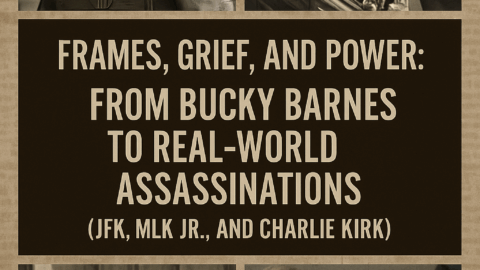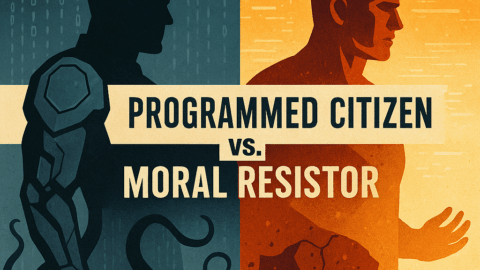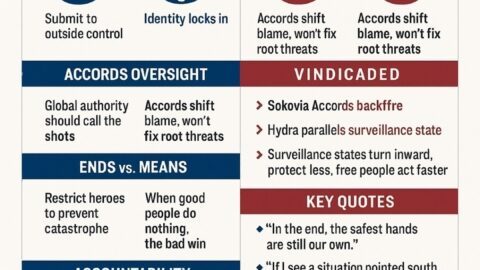“Every word has consequences. Every silence too.” — Jean-Paul Sartre
This profound quote by Jean-Paul Sartre, the influential French philosopher and playwright, captures the weight and responsibility tied to both speaking and remaining silent. Sartre, a leading figure in existentialism, believed that individuals are responsible for their actions and inactions and must face the consequences of both.
At its core, the quote highlights the idea that communication—or the lack thereof—always has an impact. Whether we choose to voice our opinions, confront injustices, or remain silent in the face of critical moments, both choices shape outcomes, relationships, and our personal integrity.
Let’s explore this idea in philosophical, emotional, psychological, social, and practical dimensions to better understand its relevance in our lives.
Philosophical Perspective
A. Existential Responsibility
- Sartre’s existentialism emphasizes that humans are radically free and, therefore, fully responsible for their choices.
- Choosing to speak or remain silent is a reflection of one’s freedom and responsibility to act authentically.
- There’s no neutral ground—silence is not simply the absence of words, but a deliberate act with consequences.
Example:
- A witness to injustice who remains silent is still making a choice—one that carries moral and societal consequences.
B. Bad Faith (Self-Deception)
- Sartre’s concept of “bad faith” refers to the act of lying to oneself to avoid accepting responsibility.
- When people remain silent to escape conflict or responsibility, they are acting in bad faith.
- Avoiding words doesn’t absolve one from the consequences; it merely transfers them to another form.
Example:
- A person who doesn’t speak up about unethical behavior in the workplace may feel they avoided confrontation, but their silence perpetuates the issue.
Emotional Consequences of Words and Silence
A. The Impact of Words
- Words have emotional power—they can build someone up, tear someone down, provide comfort, or cause harm.
- A kind word can heal; a harsh word can leave scars that linger for years.
- The consequences of words often outlast the moment they were spoken.
Example:
- A parent’s encouraging words can boost a child’s self-esteem for life, while a careless insult can leave lasting emotional wounds.
B. The Weight of Silence
- Silence can be interpreted in many ways: indifference, agreement, disapproval, or fear.
- Silence can also be deafening—it can communicate as powerfully as words, but often with ambiguity.
- Emotionally, silence can create distance, resentment, or confusion.
Example:
- A friend who remains silent during another friend’s time of need may unintentionally communicate apathy or lack of care.
C. Regret and Guilt
- Both spoken words and silence can lead to regret.
- People may regret saying something hurtful or regret not speaking up when they should have.
Reflection Question:
- Are there moments in your life where silence spoke louder than words?
Psychological Impact
A. The Burden of Unspoken Words
- Holding back important words, whether it’s an apology, a confession, or an expression of love, can create emotional and mental stress.
- Silence can fester, leading to feelings of guilt, anxiety, or missed opportunities.
Example:
- Not telling a loved one how much they mean to you before they’re gone can leave a lasting emotional void.
B. Words as Tools for Healing or Harm
- Psychologically, words can act as tools for healing, reconciliation, or destruction.
- Silence, on the other hand, can act as a shield or a barrier, preventing connection and vulnerability.
Example:
- A therapist uses words to guide healing, but a person avoiding difficult conversations with loved ones might use silence to avoid emotional discomfort.
Social and Cultural Implications
A. Silence in the Face of Injustice
- Sartre’s quote is especially powerful when applied to social justice and activism.
- Silence in the face of oppression often implies compliance or acceptance.
- Speaking up can challenge injustice, but remaining silent can perpetuate it.
Example:
- During historical injustices, those who spoke out (e.g., civil rights activists) often created change, while those who remained silent allowed the status quo to persist.
B. Communication in Relationships
- Healthy relationships rely on open communication.
- Silence during conflict can be interpreted as indifference, avoidance, or lack of care.
- On the other hand, well-timed silence can also de-escalate tension and prevent further harm.
Example:
- A couple in an argument might resolve issues faster if they communicate honestly instead of shutting down in silence.
C. Cultural Differences in Silence and Speech
- In some cultures, silence is seen as respectful or wise, while in others, it may be interpreted as weakness or disinterest.
- Understanding cultural nuances is important to avoid miscommunication.
Example:
- In Japanese culture, silence can signify respect, while in Western cultures, it might be viewed as discomfort or disengagement.
Practical Lessons for Everyday Life
A. Speak with Intention
- Words have power—use them thoughtfully.
- Think before you speak:
- Will my words heal or harm?
- Are they necessary and kind?
B. Choose Silence Wisely
- Silence can be powerful when used intentionally:
- To de-escalate conflict.
- To listen actively.
- To allow space for reflection.
Example:
- In an argument, taking a moment of silence to collect your thoughts can prevent saying something hurtful in anger.
C. Be Honest About Your Motivations
- Are you silent because you’re afraid of conflict, or because it’s the right choice for the situation?
- Are you speaking up out of courage, or out of impulse?
Moral and Ethical Reflection
A. Moral Responsibility
- Silence and words both carry moral weight.
- Choosing to remain silent in moments where your voice could prevent harm places responsibility squarely on your shoulders.
Example:
- Witnessing workplace harassment and choosing not to report it makes you complicit.
B. Integrity and Authenticity
- Sartre emphasizes that true authenticity lies in owning your choices, whether they involve speech or silence.
- Both must align with your values and moral compass.
Final Reflection
Jean-Paul Sartre’s quote serves as a powerful reminder that our words and silences are not neutral—they carry weight, intention, and consequences. Both require responsibility, self-awareness, and courage.
Key Takeaways:
- Words have power: Use them to build, heal, and inspire.
- Silence speaks volumes: Be mindful of what your silence communicates.
- Responsibility lies in both actions and inactions: You cannot escape the consequences of either.
- Self-awareness is key: Understand when to speak and when to remain silent.
Final Thought:
“Whether through words or silence, we are always communicating. The choice isn’t whether we’ll have an impact—it’s what kind of impact we’ll have.”







